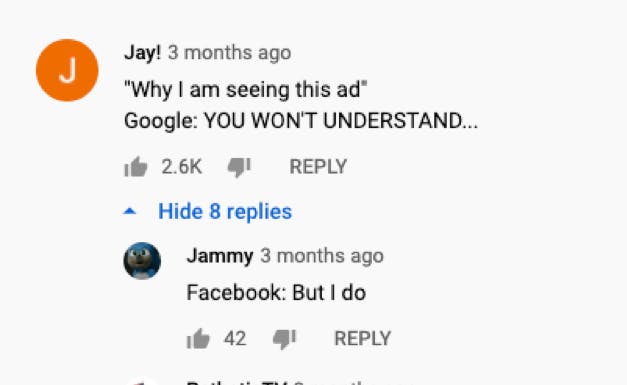Data Collection, Cookies, Surveillance, and More: The Mumbo Jumbo of ‘Target Advertising’
“Is my phone snooping on me?” Hell, yeah. “Can I do something about it?” Maybe (not).
So the promotional SMS you just received for an intimate product you were casually browsing through at the supermarket is not a coincidence. Neither are the ads you find on your Instagram feed for things you barely searched for on an e-commerce platform. Oh, and the reason why you are seeing more fitness-related content or insurance offers is that you’ve been stuck in your desk-job profile for a long time. Scared already? Read on to calm (or not) yourself a bit.
What Is Happening?
Technology is both a boon and a bane, subject to how it is working out for an individual or a company. Take for instance the everyday technology in the form of a smartphone — it has brought people closer. However, if you zoom in to the amount of information it is collecting about you, it would just add to your daily anxiety.
It may seem ironic coming from someone who himself is a data engineer, but data collection intimidates me as well. Why? Well, let me share an anecdote.
Two years ago, I was in Bangalore for some work and was residing at an Airbnb homestay. One day, I went for grocery shopping with a friend Sarthak Chowdhary who purchased Indulekha branded hair product. When I reached my accommodation, I opened Instagram, and what I saw, shocked me; an ad for Indulekha in my feed! I did not purchase the product, my friend did. I didn’t even pay for it. Then, HOW did the ad show up in my feed? Plain. Weird.
You Don’t See It, Doesn’t Mean It Isn’t There
 on Unsplash](https://cdn-images-1.medium.com/max/6706/1*In50ISWWARri4ZcPU08RXw.jpeg) Photo by Kevin Ku on Unsplash
Photo by Kevin Ku on Unsplash
The year was 2013, when many of us were not even fully aware of big data, lest be known of its astounding potential, the US National Security Agency (NSA) whistleblower Edward Snowden exposed the nation’s mass surveillance program on its citizens. In addition to denting the reputation of the US government and military alike, and US slapping espionage charges against Snowden, the exposé became a wake-up call for citizens to start questioning the intent* *of technological comforts of modern times.
When I say technological comforts, I refer to the extent of the way we interact or communicate using the internet and how each thing that we put out there could become a potential ghost from the past. Looking for directions using maps service, searching for a recipe online, watching a video of a stand-up comedian, sharing a link on WhatsApp, commenting, or liking a post on Instagram, even the amount of time you pick up your smartphone to “just check”!
It’s a Cookie Monster!

Whenever you visit a website for the first time, it alerts you about certain cookies that will track you for an ‘enhanced experience’ online. These first-party cookies are supposedly good cookies and are sent to your device to monitor your device behavior and remember particular information about you. For instance, the kind of websites you visit, the products you buy or keep in cart on a specific e-commerce platform, or even login information for faster access the next time.
Now, the problem arises when some cookies begin to know and remember more than necessary. These cookies are third-party, placed on the first website you visited. For example, you visit a news website and there’s an ad for a car. Now, when you first visited the news website and “agreed” to the cookie policy, because hey, who has the time to read through the complex document, you allowed those cookies to collect data on you — good and bad cookies both! The next time you open your Facebook feed, you may end up seeing an ad for the same car as you saw on the news article. That’s how cookies interact with each other to serve targeted ads on the pretext of ‘enhanced experience’.
The Mumbo Jumbo
Given how technology is not easy to comprehend by the end-users it has been designed for, most of us become victims of this non-consensual, yet fully agreed to, terms of data collection. Once these third-party cookies know about your likes, browsing behavior, and quite simply, what you do out there on the virtual world (including social media) that is intertwined with the real world, you have these targeted ads following you around the internet and spooking you out!
The debate over user privacy and national security began even before Snowden’s exposé and continues to be a very crucial factor when it comes to designing apps and services. These days, developers, as well as tech companies, swear by encryption at the core of their apps and services, which basically means no one will be able to break into the exchange of data or messages on a particular channel. However, that does not mean no data is being collected. It basically translates to, if ever someone is to hack into a service or app, the information is assumed to remain locked or encrypted.
We live in a world where the technology may not be at its nascent but it is accessible for the privileged. Smartphones, smartwatches, fitness bands, smart speakers, automatic lock systems, self-ordering refill buttons, website bots, AI-enabled apps, and services, are all part of the network where data is collected in order to make the experience better. In doing so, it is easier to step over the line, jeopardizing privacy.
What Do I Do To Feel Less Snooped-Upon?
Well, this is a tough question to answer. As an end-user, you really can’t do much. It is understandable to feel unsafe and crippled by the very technology that made lives easier, brought people closer, made routes easier, and weather more predictable. However, not everyone is comfortable having data collected on them.
The idea of shunning technology is impractical. However, a cautious approach is a plausible way of being safe while enjoying the benefits of technology.
For starters, one can ensure no shady apps or services are installed on your personal or official devices.
Not every cookie policy needs to be agreed upon. You can continue to use a website without having to allow their cookies to collect data on you. Now, some websites may not work well after this.
Not everything ‘personal’ needs to go on ‘social’ media. In the end, you decide how much and what all should be available in the public eye.
You can choose to use VPN services, secure communication tools, encryption, private browsers, etc. to prevent your browsing behavior or interaction with the internet being profiled.


 on [Unsplash](https://unsplash.com/s/photos/big-data?utm_source=unsplash&utm_medium=referral&utm_content=creditCopyText)](https://cdn-images-1.medium.com/max/2000/1*TQEPAwL9BCEEza68jJuZnw.png) Photo by
Photo by